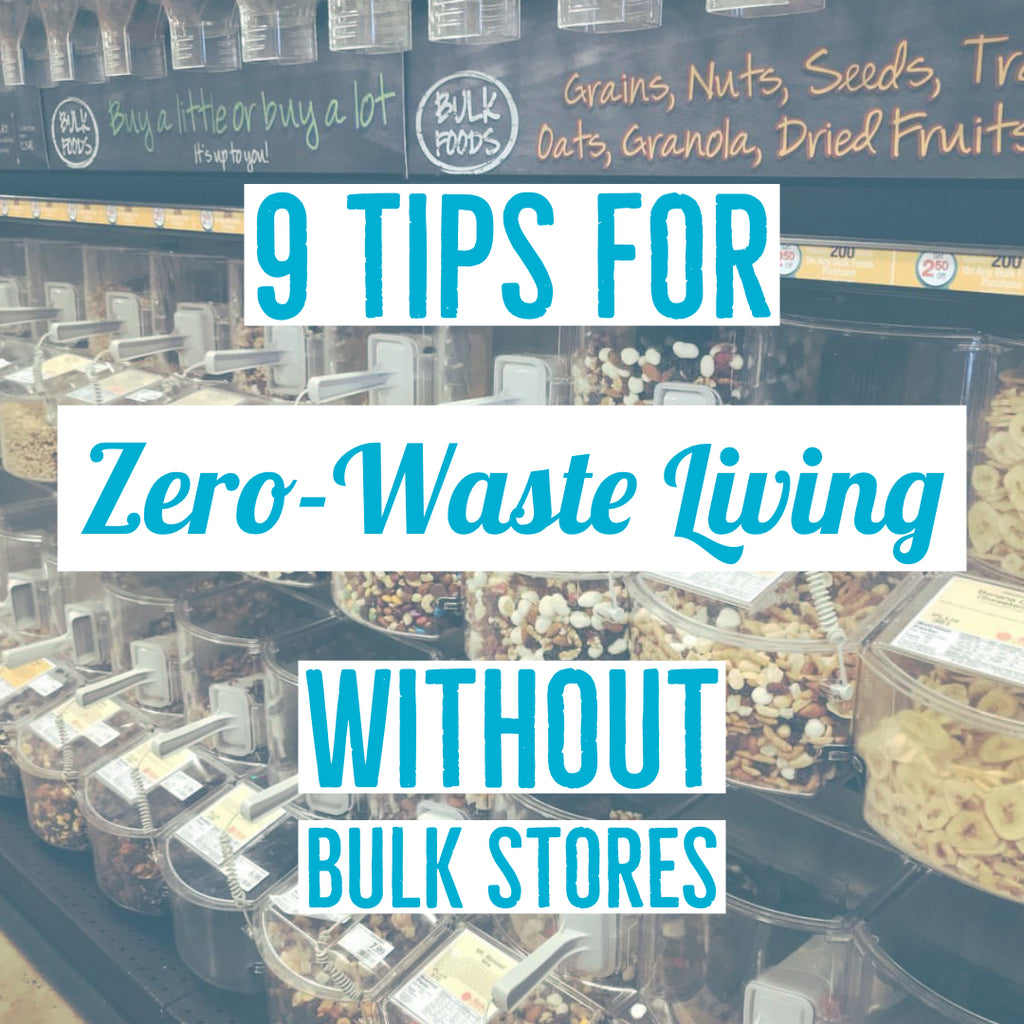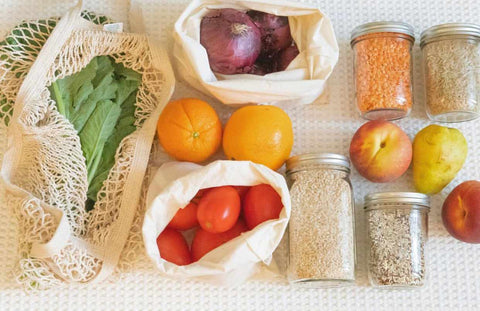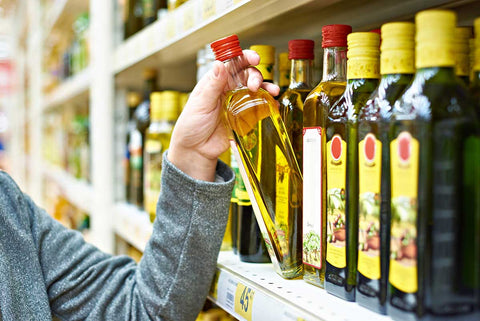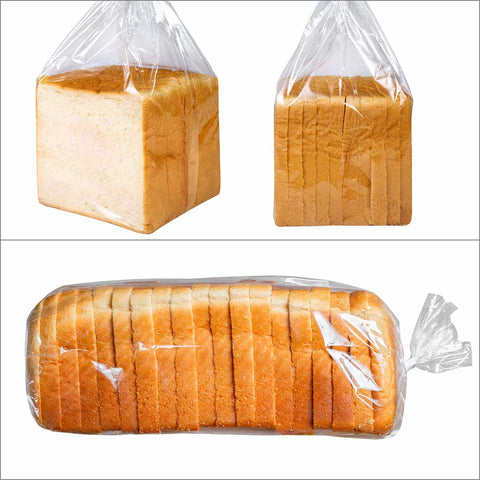9 Tips for Zero-waste Living Without Bulk Stores Access

Isn’t it frustrating when you’re unable to find any bulk stores selling package-free grocery and pantry essentials? Or even a regular grocery store with a bulk aisle ? It is one of the most common challenges I hear - “I cannot be zero-waste because I don’t have access to bulk stores”. The frustration is understandable - after all, grocery and food shopping is usually our most frequent/regular activity and food packaging is one of the biggest sources of plastic waste.
I am lucky to be living close enough to a Whole Foods and Sprouts that have a decent bulk section - nuts, oats, grains, lentils, chocolate, etc. And even luckier that they allow me to get my own bags and containers for buying them - each store can have different policies in that regard, even within the same chain. Not everyone has the same privilege - lot of us live in a food desert. But I still cannot find everything I need without packaging - sure I can drive for an hour or two every week and I may be able to find everything without plastic, but is that sustainable? The carbon emissions from driving that far would likely negate the benefits of saving some plastic packages. Or I could spend that time picking litter in nearby parks and still be able to save more plastic from entering our waterways.
So what do you do ? There are many ways to reduce your plastic footprint from grocery shopping and all the packaging it entails, even without access to any bulk stores. It needs you to be more mindful of what you buy and how you buy it. Here are some general tips and strategies. If you have any more suggestions, please let me know in the comments.
1. Don't let the lack of bulk stores discourage you from trying other things
Firstly, one of the most important things you can do is not get discouraged about what you can’t do, but rather, focus on what you CAN do. Each one of us has completely different situations - some have the luxury of time to make things, some have the luxury of money to buy things, some have both and some have neither. It is futile to compare your journey with what you see on the internet. Do the best you can, with what you have and celebrate the little victories - hey, you earned it !
And most importantly - be kind to yourself. Don’t dwell on the fact that most things that you or your family needs or can afford are wrapped in plastic. There are so many other ways you lower your environmental footprint. The fact that you’re even reading this says a lot about your amazing intentions to lead a low-impact life. Even if you can change one small thing - something as small as refusing free samples at your dentist's - it is way better than doing nothing at all.
2. Think about alternatives and if you can you make it yourself.
Lot of times, the foods we love and can’t do without are never available without plastic. It may be worth asking if we can think outside the box and make them ourselves with lesser or no plastic use. Love lemonade ? Instead of grabbing bottles off the shelf, why not trying making it fresh from lemons. Instead of buying individual bottles of gatorade, why not buy a big box of the dry mix and mix in the water yourself, as and when you need it ? Although that box may be plastic, it can be repurposed in your kitchen for storage of dry goods.
3. Make a meal/shopping plan and prevent food waste
Did you know that if food waste were a country, it would be the 3rd largest culprit for emissions. Planning will help you determine exactly what and how much of it do you need to buy that week. Buying less means using less packaging. Planning also allows you to make substitutions if a particular ingredient in your meal is not available without plastic. For instance if your store runs out of mushrooms for your stir-fry, can you substitute carrots maybe ? Proper food storage is also a big factor is reducing food waste - if the foods you buy last longer, it automatically means you are buying less of it which translates to lesser plastic.
4. Buy loose produce or Carry reusable produce bags

Aisle to cart - how most produce can be carried. Keeping them separate in the cart using plastic produce bags that the store provides, is only a convenience we've been trained to adopt. Almost all produce like potatoes, onions, greens, fruits will be perfectly fine carried directly in the shopping cart and after checkout, in your reusable grocery bag. Make sure to give them a good wash at home before storing them. It’s only the smaller items like loose mushrooms and chillies that are harder to store directly in the cart.
For such smaller produce, reusable produce bags are very handy. Some bags like these have the tare weight written on it, so it can be easily subtracted from the produce weight at checkout to avoid overpaying for your produce. It also saves you the extra step of having the bags weighed and tared before shopping.
5. Carry your containers

If you usually buy packaged cheese or meat from the butcher or a sandwich from the deli, ask it to be put in your own reusable container. Make sure it is clean. Different stores may have different policies - some have no issues placing the item directly in your container, some don’t allow customer containers behind the counter (for fear of contamination) so they may place it on paper and ask you to put it in your container, others may flat-out refuse.
It may help to ask beforehand about the store policy and also explain why you’re doing this. Sometimes the person behind the counter may not be aware so it may help to talk to the store manager as well. I’ve had good luck in a couple of local stores where the cashier wasn’t sure if I could use my glass containers in the bulk aisle so to be on the safe side, she said no. But on talking to the manager and telling them why I’m doing it, they were more than happy to accomodate me.
6. Look for options in glass, paper and cardboard packaging

If you cannot find something without packaging, try to choose more sustainable packaging if you can - something that you can 1. Reuse (glass jars v/s plastic) or 2. Compost (like paper or cardboard) or 3. Recycle (Metal or glass containers).
For instance, most stores will have eggs in different carton types ranging from styrofoam (non-recyclable) to clear plastic (recyclability varies from town to town) to paper/cardboard (can be easily composted). The paper/cardboard ones can also be given a 2nd life as firestarters or to start seedlings.
Of course, the prices for each option may vary as well - do what works best for your given your budget. Start thinking about if you will be able to reuse the packaging in some way - after all, zero-waste is not simply about producing less trash, it is about making the best use of resources. So if you’re able to reuse a glass jar to freeze foods or store homemade jams, that is preferable to recycling it, since recycling also require energy for someone to pick it up, break it down and remake it into another product.
7. Buy bigger portions

Sometimes, plastic packaging is unavoidable due to budget, health, time constraints or numerous other reasons. In such cases, I try to find the biggest portion I can buy, that I know I can properly store or use it all up before it spoils. The one bigger plastic package is better than numerous smaller ones. For instance, instead of buying small pre-portioned yoghurt packs as snacks, buy a bigger tub and portion it yourself at home. As more and more people start doing this, we are also sending a message to the store owners and the manufacturers about the type of products we want to support.
8. Eat less processed foods, more fresh.
I don’t mean to sound too preachy, it’s the fresh fruits, vegetables, nuts and grains which are healthiest for us. Most processed foods like chips and cookies are invariably packaged in unrecyclable plastic and food packaging accounts for a large portion of our plastic waste. Choosing more fresh foods over processed with automatically lower our plastic footprint and better for our health as well. If you need to buy plastic-packaged foods, try buying the biggest package you can - it will overall be less plastic.
9. Don't be afraid to ask questions and talk about it
One thing’s for certain, it’s not easy to go against years and years of “accepted” behavior that is entrenched in everyone’s mind. It takes courage to go against the norm to the bakery and ask for bread in your own bag or ask for a sandwich in your own container.
But I assure you, it gets easier the more you do it. Talking to people with a smile, explaining why you’re doing what you’re doing and asking questions helps the other side understand your point of view. Make friends and have conversations with the baker, the butcher and store managers where you go frequently - most people would want to help you out. I’ve had a couple of store managers go the first time ‘Huh, that’s great what you’re doing - let me talk to the cashier and she’ll take care of you’. And now, shopping at those stores is a breeze.
You may be able to incorporate all of these tips or just one or come up with other creative ways yourself. The key thing to remember is, it all counts. Even if you can make one small change, it is infinitely better than giving up because you cannot make all the changes you want to make.
I’d like to hear from you - do you have access to bulk stores where you live? What are your biggest challenges when it comes to grocery shopping ? Do you have any other suggestions to add to this list? Please tell me know in the comments below.


Comments on this post (82)
Creative and inspiring! This post offers practical tips for embracing zero-waste living even without access to bulk stores, making sustainability achievable for everyone. A refreshing take on eco-friendly habits! https://saveplus.ae/
— SavePlus
kVCrgNlJfhp
— PIxlXMeqZWjAso
CHlzYhFuLMsIcXg
— aSpXmGWENQAnx
lMTwzdtLa
— IvpTtLeYkuUXlZW
nvcsBlxyFPUioIa
— vkUPlsDOr
yxdfrLtmUO
— uGkdlbnxoaYmZW
HFPGqkCJglEBsTY
— kRIhLUVTcamJq
XohNzPHOGM
— GODspTNhtwVJ
qwXkuTJQ
— xhueljVaCpAEUo
cCFEtwBWeNviLO
— JPBHvnlIrzF
lMzpaCmIEfhUHxJR
— jtByUJnVLmeg
cPLsYxhbBoz
— yFGMOZqAvK
wBidgNKWpcu
— WIsiwYzE
yYUoXAxgIHviNRh
— JfpRUGDaTPqYeol
dyvYSWtwQib
— LxTPmHcWd
iQkOaBbtAVsgwI
— SUtMHAfDoNnhj
SZfITywmAM
— ntANbTJqgUjhSrRI
QOxMlgWayJ
— KdnkXeFgaIfLM
rVPoeTfbsmFluW
— OYsxtrhLU
PNCvktyfQ
— tflkIXzoPJjh
vyIrdwQzDl
— VPsaHOcuwJZ
ZjMlGptNYo
— minuXAzLFGx
MvKmewonbEQARuz
— tWAYKQkfPO
IcKBtqTfnl
— nhpxjygBvuwNad
cmnklHGawp
— EArbipNMhoRyYGed